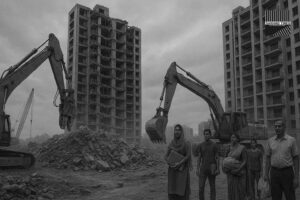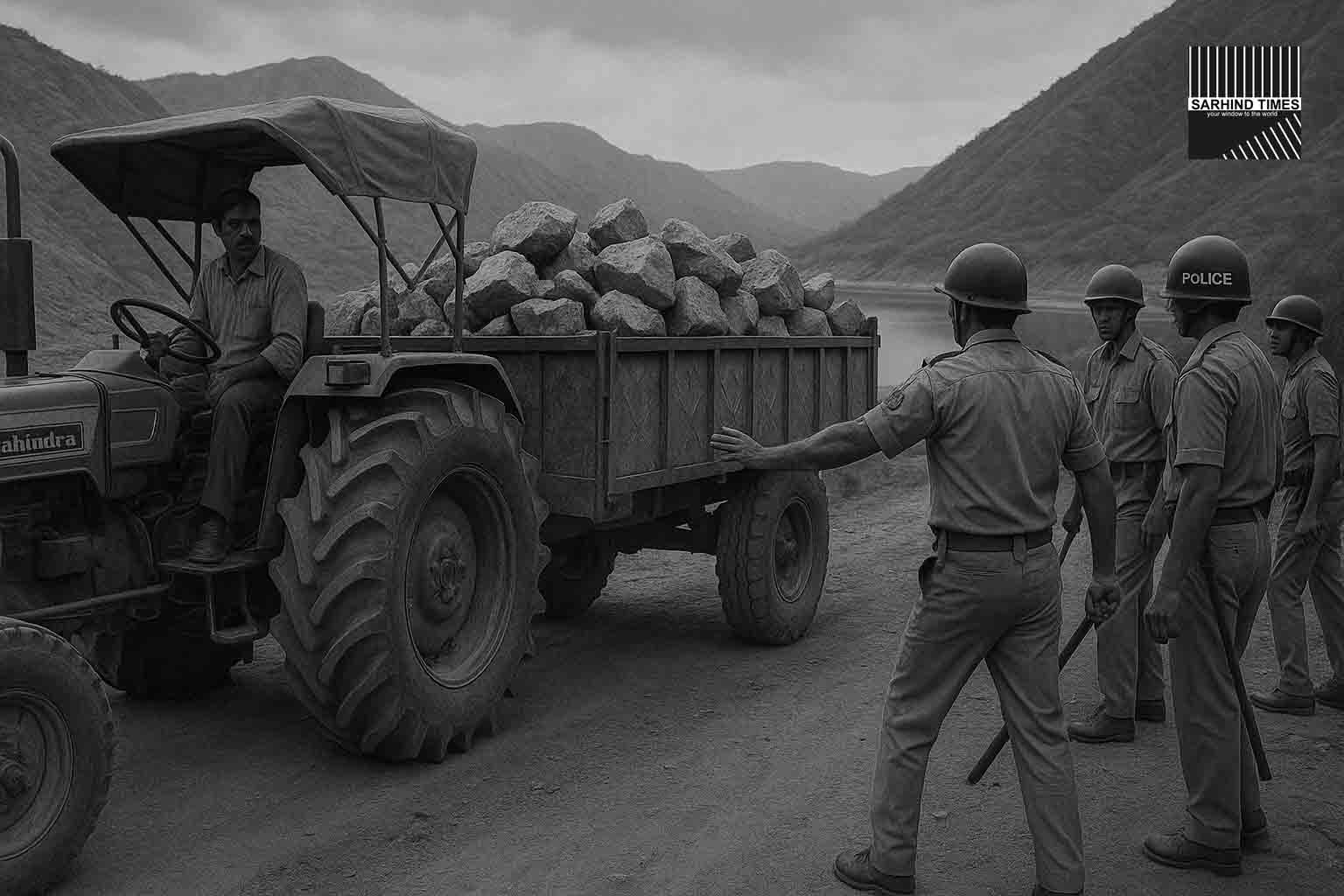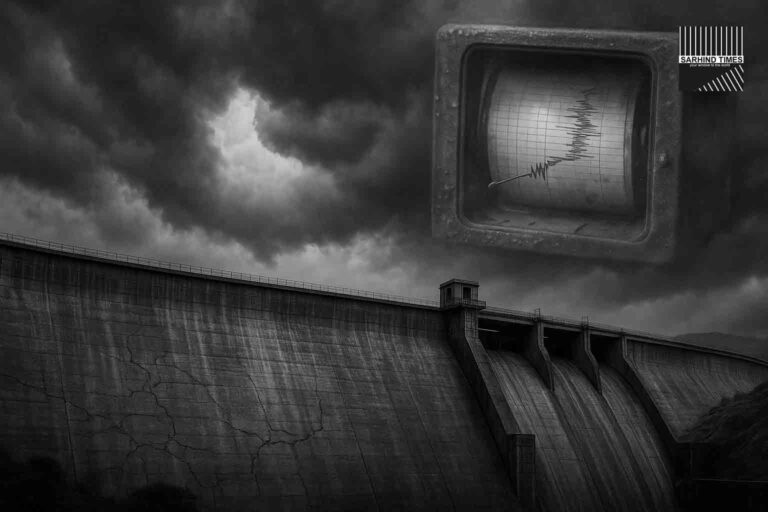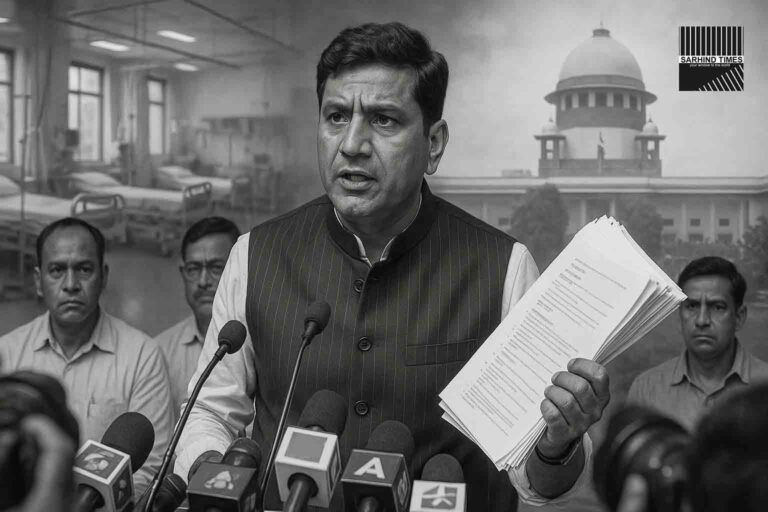The Aravali hills, stretching across Haryana, Rajasthan, and Delhi, have long been called the “lungs” of North India. They are more than just a geographical landmark; they are an ecological lifeline for a region struggling with unchecked urbanisation, air pollution, and depleting groundwater. Yet, despite multiple court orders and protective laws, illegal mining has continued to gnaw at the fragile hills.
This week, the Gurugram administration made a decisive move in Dhauj village, seizing a tractor trolley involved in unauthorized excavation and imposing a fine of ₹1.75 lakh. The case highlights both the continuing threats to the Aravalis and the state’s renewed attempts to crack down on encroachment and environmental violations.
The Crackdown in Dhauj
According to district officials, the tractor trolley was caught while illegally transporting excavated material in Dhauj village, a part of Gurgaon district that falls squarely within the ecologically sensitive Aravali belt.
Acting swiftly, the enforcement team booked the violators under Sections 4 and 5 of the Punjab Land Preservation Act (PLPA)—a piece of legislation designed to prevent indiscriminate mining, deforestation, and construction in protected areas.
The fine of ₹1.75 lakh is significant in both punitive and symbolic terms. It represents a financial deterrent to violators who often see minor penalties as a cost of doing business. Officials have further indicated that repeated offenders may face criminal prosecution and confiscation of machinery.
Why Dhauj Matters
Environmentalists have often described Dhauj as the “entry gate” to the Aravalis in Haryana. The area has natural lakes, forest patches, and biodiversity corridors that are vital for:
- Groundwater Recharge – Rainfall percolates through the rocky Aravali soil, replenishing aquifers that serve millions in Gurgaon and Faridabad.
- Dust Storm Mitigation – The hills act as a natural barrier preventing desertification from spreading eastward into the NCR.
- Air Quality Regulation – Forested patches help absorb pollutants in one of India’s most polluted regions.
- Biodiversity Habitat – Dhauj Lake and surrounding hills are home to peacocks, leopards, porcupines, and migratory birds.
But the growing scale of illegal stone mining and construction activity threatens to erase these natural protections.
The Larger Problem of Illegal Mining in Aravalis
Despite Supreme Court orders banning mining in the Aravalis, illegal quarrying and excavation persist. Reports suggest that thousands of hectares of forest land have been lost in recent decades. Trucks and tractors move in at night, extracting stone, sand, and soil for Gurgaon’s booming real estate sector.
The issue is worsened by weak enforcement, political pressures, and the lucrative profits involved. Small seizures, like the recent tractor trolley, are just the visible tip of a much larger iceberg.
A 2022 study by the Central Empowered Committee (CEC) submitted to the Supreme Court warned that 31 hillocks in the Aravali range have vanished due to mining. Each loss of hillock increases vulnerability to flooding, drought, and extreme heat.
Voices from the Ground
- Local Activist, Green Aravali Collective:
“The administration wakes up only when a media report or public outcry happens. We need 24×7 surveillance, not symbolic crackdowns. The Aravalis are dying by a thousand cuts.”
- District Official (anonymous):
“Our teams are committed, but enforcement is a challenge given the scale of the area and the sophistication of illegal networks. We are increasing the use of drones and satellite imagery to monitor mining activities.”
- Resident of Dhauj Village:
“For us, the lake and hills are life itself. If they go, our farming and livelihoods will collapse. Mining brings short-term money for a few, but long-term loss for all.”
Balancing Development and Ecology
The Gurgaon-Faridabad region has seen explosive urban growth in the last 20 years, with skyscrapers, expressways, and gated communities mushrooming at a rapid pace. This growth has created insatiable demand for construction material.
Developers argue that regulated mining is essential for infrastructure, while environmentalists counter that unchecked quarrying will lead to ecological collapse. The government’s challenge is to strike a balance between economic expansion and ecological preservation.
Recent proposals include:
- Expanding eco-tourism in Dhauj to provide alternative livelihoods.
- Creating community-led conservation trusts for lake and forest restoration.
- Strengthening penalties for repeat offenders and enhancing judicial oversight.
The Way Forward
For any meaningful change, the following steps are essential:
- Technology-Driven Monitoring
Use of drones, satellite imagery, and geo-tagging to detect illegal mining in real-time. - Community Involvement
Empowering villagers and local panchayats to act as watchdogs with financial incentives for reporting violations. - Judicial Backing
Fast-tracking mining-related cases in special green courts to ensure accountability. - Public Awareness
Campaigns to highlight the ecological role of the Aravalis and the risks of ignoring them. - Restoration Projects
Immediate ecological restoration of degraded lake beds, with support from corporate CSR funds.
Conclusion
The seizure in Dhauj is not just about one tractor or one fine. It is a litmus test of whether Gurgaon and Haryana can rise to the challenge of protecting the Aravalis. The hills are not just stones and soil—they are a living shield against climate disasters, pollution, and water scarcity.
If preserved, they will continue to sustain millions in NCR. If lost, the price will be far greater than ₹1.75 lakh—it will be a blow to the very survival of an already stressed ecosystem.
#Gurgaon #Aravalis #Environment #IllegalMining #Ecology #GroundWater #Sustainability #ClimateAction #GreenIndia





















+ There are no comments
Add yours